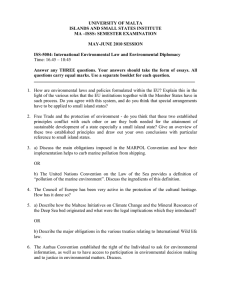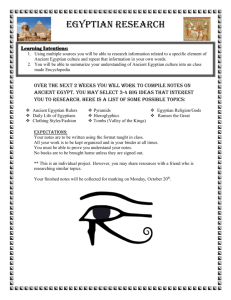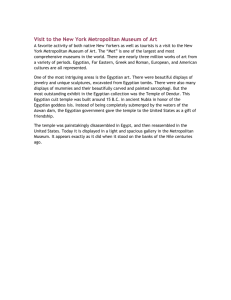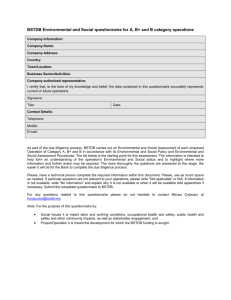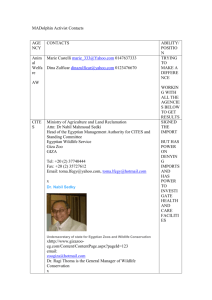Environmental Law
advertisement
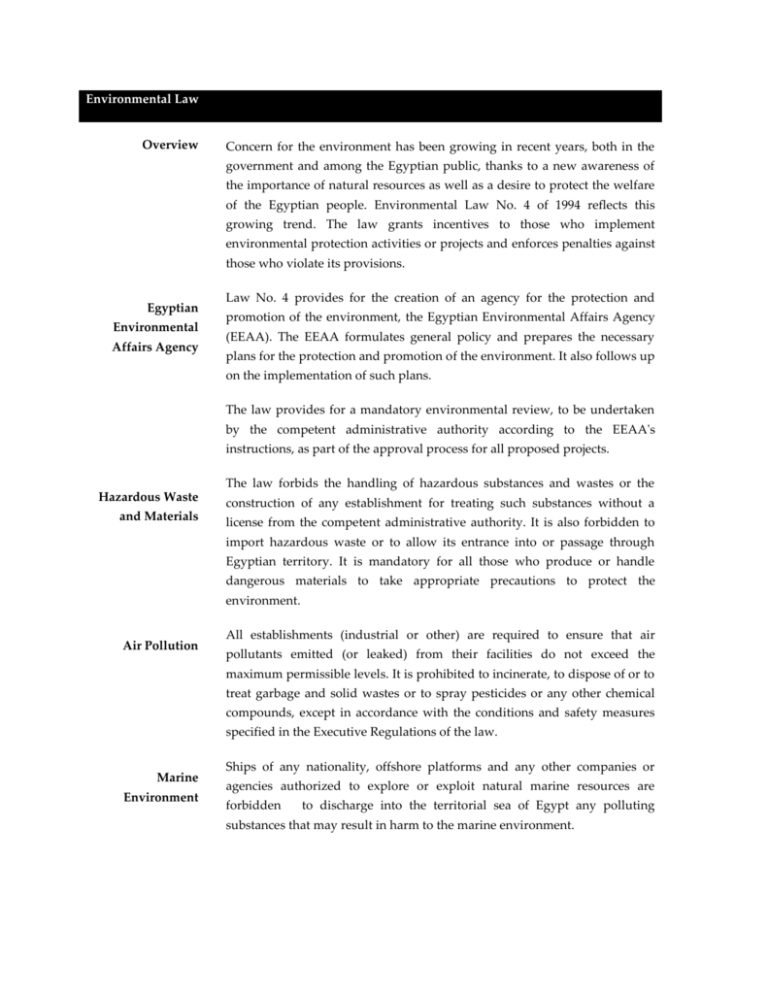
Environmental Law Overview Concern for the environment has been growing in recent years, both in the government and among the Egyptian public, thanks to a new awareness of the importance of natural resources as well as a desire to protect the welfare of the Egyptian people. Environmental Law No. 4 of 1994 reflects this growing trend. The law grants incentives to those who implement environmental protection activities or projects and enforces penalties against those who violate its provisions. Egyptian Environmental Affairs Agency Law No. 4 provides for the creation of an agency for the protection and promotion of the environment, the Egyptian Environmental Affairs Agency (EEAA). The EEAA formulates general policy and prepares the necessary plans for the protection and promotion of the environment. It also follows up on the implementation of such plans. The law provides for a mandatory environmental review, to be undertaken by the competent administrative authority according to the EEAA's instructions, as part of the approval process for all proposed projects. The law forbids the handling of hazardous substances and wastes or the Hazardous Waste construction of any establishment for treating such substances without a and Materials license from the competent administrative authority. It is also forbidden to import hazardous waste or to allow its entrance into or passage through Egyptian territory. It is mandatory for all those who produce or handle dangerous materials to take appropriate precautions to protect the environment. Air Pollution All establishments (industrial or other) are required to ensure that air pollutants emitted (or leaked) from their facilities do not exceed the maximum permissible levels. It is prohibited to incinerate, to dispose of or to treat garbage and solid wastes or to spray pesticides or any other chemical compounds, except in accordance with the conditions and safety measures specified in the Executive Regulations of the law. Marine Environment Ships of any nationality, offshore platforms and any other companies or agencies authorized to explore or exploit natural marine resources are forbidden to discharge into the territorial sea of Egypt any polluting substances that may result in harm to the marine environment. The Egyptian government has developed a five-year environmental action National Action plan (1997/98-2001/02) for dealing with the country's solid waste, air and Plan water pollution problems. The plan's priorities include preparing feasibility studies for proposed development projects, urging companies to work toward ISO 14000 environmental standards certification and urging the use of scientific management techniques and waste recycling to preserve natural resources. International Conventions Egypt is a signatory to various conventions concerning environment protection, among which are the following: The Environmental Modification Convention The African Convention on the Conservation of Nature and Natural Resources The Vienna Convention for the Protection of the Ozone Layer The Convention for the Prevention of Pollution from Ships The Barcelona Convention for the Protection of the Mediterranean Sea Against Pollution; The Brussels Convention on Civil Liability for Oil Pollution Damage The Moscow Treaty for Nuclear Weapon Tests in the Atmosphere
